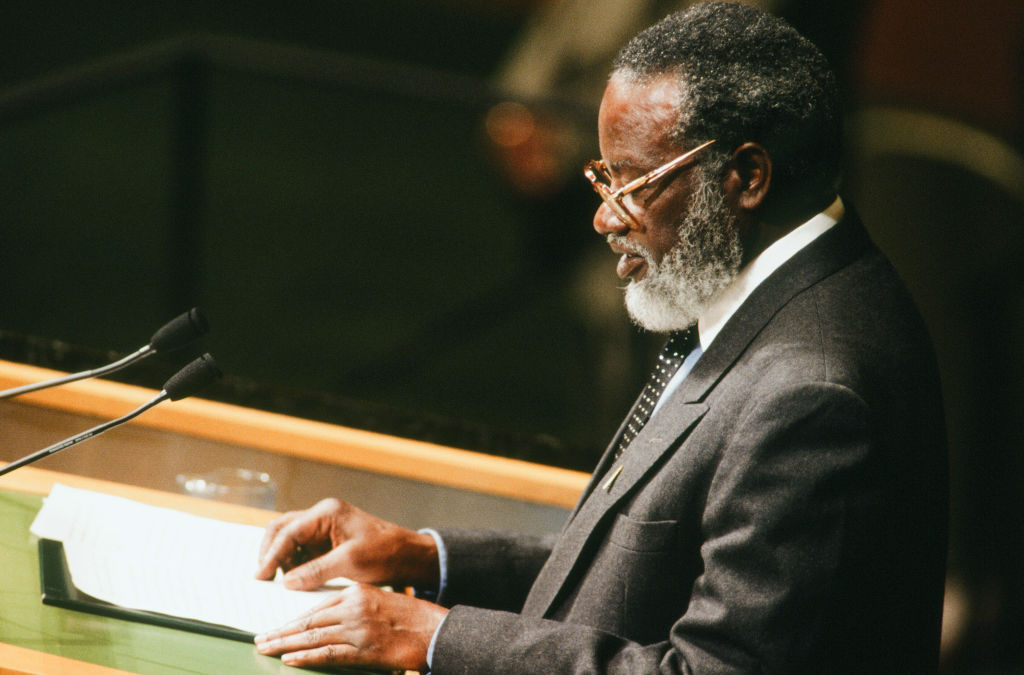Namibia’s first president, Sam Nujoma, passed away on Saturday at the age of 95, following three weeks of hospitalization in the country’s capital Windhoek. Nujoma, who was formally recognized as the ‘Founding Father of the Nation’ by a 2005 parliamentary decree, played a defining role in the country’s struggle for independence. As one of the founding members of the South West Africa People’s Organisation (SWAPO) in the 1960s, he led the resistance against South African rule, eventually securing Namibia’s independence in 1990.
His passing was announced by Namibian President Nangolo Mbumba, who acknowledged the profound impact of Nujoma’s leadership. “Our founding father lived a long and consequential life during which he exceptionally served the people of his beloved country… The foundations of the Republic of Namibia have been shaken,” said Mbumba.
Nujoma led the country for three terms, from 1990 to 2005, and was widely credited with stabilizing Namibia post-independence. His policy of national reconciliation encouraged white citizens to remain and contribute to the economy, particularly in agriculture. His administration also championed women’s and children’s rights, introducing policies such as mandatory child maintenance payments.
However, his leadership was not without controversy. While he was revered for his role in liberation and state-building, his tenure also drew criticism for its political rigidity and intolerance of opposition.
International tributes have poured in following his passing. King Charles III described his contribution to democracy as “immense”, while South African President Cyril Ramaphosa hailed him as an “extraordinary freedom fighter”. African Union Commission Chair Moussa Faki Mahamat called him the “epitome of courage”, and Kenya’s President William Ruto lauded him as a “visionary leader.”
Loading...
As Namibia reflects on Nujoma’s passing, his legacy remains deeply embedded in the nation’s history.
From spearheading the fight for independence to guiding the country through its formative years, his leadership shaped modern Namibia. His influence extended far beyond Namibia’s borders, earning both admiration and scrutiny. As the country prepares to lay its founding father to rest, his impact on Namibia’s trajectory — both its triumphs and its challenges — will continue to be debated for generations to come.
Loading...
